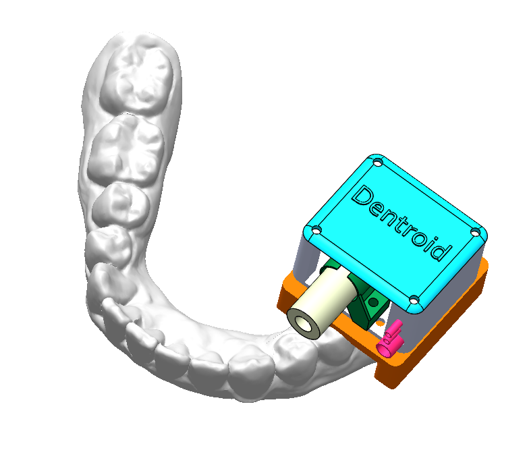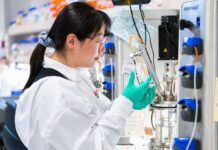
Media Releasee by IMCRC
A collaborative research project between the Innovative Manufacturing Cooperative Research Centre (IMCRC), dental technology company Dentroid Technologies and Griffith University is bringing Australians one step closer to accessing comfortable, pain free dentistry.
The project, worth $650,000 in research effort (cash and in-kind), will develop a high-power laser micro-electro-mechanical systems (MEMS) mirror (or “micromirror”) for the world’s first in-mouth laser-enabled robotic assistive device.
By replacing the traditional drill mechanism with gentle lasers, the innovative device will help dentists to provide patients ultra-precise and needle-free dental treatment with unprecedented convenience and speed.
Dr Jason Coonan, IMCRC’s Deputy CEO, said that with automation and robotic assistance in dentistry still in its early stages, IMCRC was proud to be co-funding the development of this tremendously exciting technology as well as laying the foundation for manufacturing the MEMS mirror in Australia.
“This research collaboration has wide-ranging impacts, from improving oral health for many populations across the world to leveraging Australia’s position as a global leader in dental excellence,” he said.
“As this project demonstrates, effective collaboration between industry and research partners is the key to delivering mutually beneficial translational research outcomes that grow Australia’s medical technology manufacturing industry and create global export opportunities.”
Dr Omar Zuaiter, CEO of Dentroid Technologies said that the IMCRC research collaboration would enable Dentroid to deliver a device that would meet the growing demand for quality dental care and improve access for remote and disadvantaged communities.
“We’re excited to join forces with IMCRC and Griffith University to develop this world first micromirror. IMCRC’s funding will enable us to ultimately manufacture the in-mouth robotic assistive device that will herald a new era of accessible dentistry,” he said.
“Because our in-mouth device is compact, portable, and easy to use, it can facilitate early screening and diagnosis of dental issues, and then help administer the right treatment at the right time. The device will also enable remote and mobile dentistry, a game changer when it comes to improving access and quality of oral healthcare across Australia.”
Griffith University Professor Dzung Dao said he was delighted to be collaborating with IMCRC and Dentroid to assist with the development of such a cutting edge and impactful product.
“This collaborative research and development model means Griffith University can leverage our resources and technology to help Dentroid overcome barriers and develop, scale-up and deploy a locally made product of global significance,” Dao said.
“It also provides our researchers and students the opportunity to learn from industry SMEs and hone their understanding of Australia’s manufacturing landscape, allowing them to up-skill and add value when working on future projects.”




















